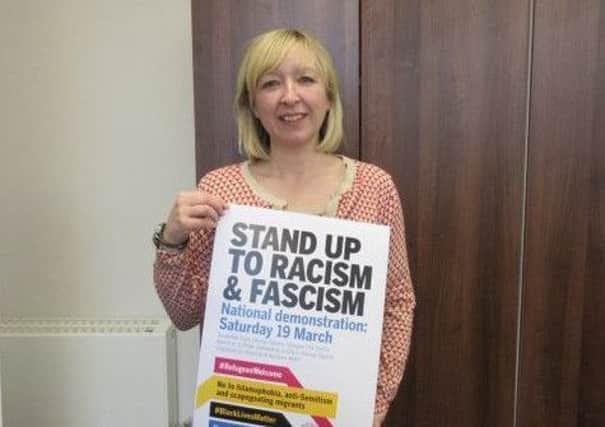Primary pupils as young as 7 to '˜inspect' their school


Teaching unions have criticised the plan which would see pupils given raw data on absences, exclusions and behaviour referrals to help evaluate their schools.
The “child-friendly” version of the current How Good Is Our School? self-evaluation tool already used could see pupils carrying out observations of lessons and sampling their peers’ work.
Advertisement
Hide AdAdvertisement
Hide AdSome schools, including Bearsden Academy in East Dunbartonshire, already involve pupils in evaluation. The school’s “aspirational team” consisting of 30 pupils ranging from S1 to S6 pupils sharing views with staff. The pupils also complete a pupil improvement plan which is discussed with teaching staff.
With primary pupils, the feedback would include using symbols such as stars and smiling or sad faces.
Education Scotland, Holyrood’s education improvement body, intends publishing a draft version of its proposals, aimed at pupils in P4 and upwards, by next April.
But teaching unions said the proposal could undermine teachers’ confidence and lead to breaches of confidentiality.
Andrea Bradley, assistant secretary of the Educational Institute of Scotland, said teachers were feeling “fearful and undermined” at the prospect of such close scrutiny by their pupils.
She said: “If children are given the data, they will think about it and talk about the children in their own classes whose attendance they know is problematic.
“There might be reasons why these children are not able to attend – health issues, socioeconomic background – but those reasons are not the business of anyone other than the professionals who have these children’s interests at heart.”
And Seamus Searson, general secretary of the Scottish Secondary Teachers’ Association, said when it came to classroom inspections and assessments teachers wanted to deal with professionals.
Advertisement
Hide AdAdvertisement
Hide AdHe said: “Teachers want advice from people who they respect and who were qualified in the same field.”
However, Stephen Miller, headteacher at Denny High school in Falkirk, said his own experience of working with pupils to evaluate learning had not resulted in learners being over-critical of staff.
He said: “Conducted sensitively and appropriately, sharing a summary of these indicators, and seeking their input in thinking through the generic reasons that lie behind them, is critical in helping map out possible solutions.
“Teaching is a collaborative enterprise. You cannot possibly know how to improve your teaching without honest conversations with pupils who are, after all, the recipients of that teaching.”
Tom Bennett, director of researchED, a project aimed at informing teachers of current research, said: “I invite every teacher affected by this insipid, fag-packet, blue-sky moronism to send a clear message to the simple-minded souls who propose it: get stuffed.”
An Education Scotland spokeswoman said: “How Good Is Our School? for young people is first and foremost about encouraging pupils to participate in school self-evaluation together with their teachers, not inspection.
“The toolkit will be an optional resource practitioners can choose to use with their pupils when it is published. Many of the activities that will be incorporated in the final version are already common practice in schools across Scotland as practitioners involve pupils in their self-evaluation.
“The process provides young people with the opportunity to make a positive contribution to their school community.”